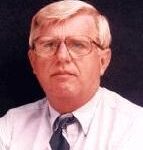At a speech October 2, President Obama said, “These policies are on the ballot. Every single one of them.” This can be said to be the most truthful statement during the six years of President Obama’s administration.
What follows this paper is an October 26 Wall Street Journal article “The Other Senate Nuclear Option” by Glenn McCullough. This article points out Harry Reid and President Obama have stopped work on the Yucca Mountain long-term repository for nuclear waste. This is after Congress on numerous occasions have approved the repository and spent over $15 billion on site selection and construction. All rate payers in the U. S. have contributed over $31 billion since 1983 to the fund to solve the nation’s nuclear waste problems.
Harry Reid must be unseated as Senate Majority Leader in order to restore Yucca Mountain as the repository. This can only be done by electing Republicans in the Senate races November 4. So, vote on President Obama’s costly policy of derailing the needed nuclear waste repository by voting REPUBLICAN FOR SENATE NOVEMBER 4.
James H. Rust, Professor of nuclear engineering and policy advisor The Heartland Institute
THE OTHER SENATE NUCLEAR OPTION
Glenn McCullough, WSJ 10-26-2014
Much is at stake as Americans vote on Nov. 4. While different races have different issues, the nuclear-energy world is watching to see which party will control the Senate. If Majority Leader Harry Reid becomes minority leader, he would likely no longer be able to sustain opposition to Yucca Mountain, the Energy Department’s chosen nuclear repository.
On Oct. 16 the Nuclear Regulatory Commission issued its Yucca Mountain Safety Evaluation Report 3, stating that the facility meets the government’s long-term regulatory and safety requirements as a nuclear-waste repository, including the benchmark of remaining safe for a million years. The report is a culmination of decades of scientific and technical studies showing the underground facility in south-central Nevada to be safe and secure for storing spent fuel and other nuclear waste. Yet after nearly 30 years of study, at a cost of over $15 billion, Yucca Mountain is stuck in political gridlock.
The idea of a national used-nuclear-fuel repository was conceived in 1987 in an amendment to the 1982 Waste Policy Act, and Yucca Mountain was approved by Congress in 2002. In 2011, however, the Obama administration yanked the project’s funding.
The president had plenty of help. Nevada Sen. Reid has made it his business to personally kill Yucca Mountain. This was despite the fact that ratepayers across the U.S. who use nuclear energy had already contributed $31 billion to the project—until Energy Secretary Ernie Moniz suspended the one-tenth of a cent per kilowatt-hour fee earlier this year, in response to a court order.
Mr. Reid has unleashed his particular brand of heavy-handed politics to get his way on Yucca Mountain. As majority leader, he applied pressure on President Obama’s appointees at the Nuclear Regulatory Commission to secure commissioners who advanced his agenda. The NRC chairman who pulled the plug on Yucca Mountain was Gregory Jaczko, a former Senate aide to Mr. Reid.
Just over a year after the administration scuttled the project in early 2010, the Government Accountability Office issued a report saying the Yucca Mountain shutdown was not only strictly political, but would also set back used-fuel storage efforts by two decades. As the New York Times reported at the time, “The Obama administration did not provide a technical or scientific basis for shutting down the site and failed to plan or identify risks associated with its hasty closure.”
The Tennessee Valley Authority—which operates two nuclear plants in Tennessee and one in Alabama—has a deep commitment to producing safe, reliable and affordable nuclear energy for its customers. Over the last four decades, ratepayers in the Tennessee Valley who rely on the TVA and local power-supply companies paid about $53 million a year to the Energy Department to fund a used nuclear-fuel repository. TVA isn’t alone. All told, 100 nuclear reactors in 31 states produce 20% of the total electricity in the U.S. Nuclear is a vital part of our nation’s energy mix as we seek enhanced energy security and lower carbon emissions.
Pursuant to federal law, the government was directed to begin providing storage for spent nuclear fuel in 1998. That didn’t happen. As a result, reactor owner-operators began suing the federal government for its failure to begin picking up and storing the waste. The government has lost every one of the lawsuits. Now the Treasury has to reimburse reactor owners for the expense of on-site storage. The current cost to the taxpayer for the government’s failure to establish a national repository is estimated to be $20 billion, and growing at a rate of $500 million each year.
As House Energy and Commerce Chairman Fred Upton said when the 2011 GAO report on Yucca Mountain was released, “It is alarming for this administration to discard 30 years of research and billions of taxpayer dollars spent, not for technical or safety reasons, but rather to satisfy temporary political calculations.”
Nuclear energy is here to stay. It is safe, environmentally friendly, affordable and good for the economy, jobs and manufacturing. But the nation needs a safe repository for used nuclear fuel. When Americans go to vote next month, they have a chance to tell Sen. Reid and Democrats in Washington what they think about people who have seized Yucca Mountain and turned it into a political tool at a huge cost to taxpayers and the environment.
[Originally published at the Wall Street Journal]





